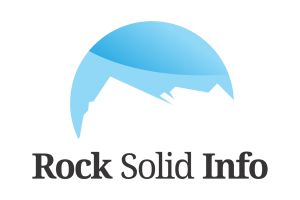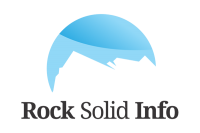Mortgage insurance is simply an insurance policy placed on the mortgage, in which an entity (Mortgage Company) receives financial protection\reimbursement against losses. The mortgage insurance is simply an insurance policy against the loan going into default and the property being foreclosed on. The reason for its existence is that it allows Lenders to disperse some of the risk because of the insurance policy therefore, allowing loans to be made for individuals with less than a 20% downpayment.
The upfront and monthly mortgage insurance charges are something that buyers should be aware of.
In today’s present market the difference in the monthly mortgage payment might be a major reason in which loan you choose (assuming that the loan guidelines and your individual situation don’t push you towards a certain way). Sometimes the monthly MI charge will offset an even better interest rate.
Here is a little history about mortgage insurance. Seeking to revive the housing industry, in the 1950’s, banks/lenders began looking for alternatives to FHA-insured loans. Lenders began increasingly turning to non-government insured mortgages (conventional mortgages), such as those purchased by Fannie Mae. Unlike FHA, conventional mortgages did not have ceilings on mortgage interest rates and they provided relatively larger loan amounts. However, these conventional mortgages required larger down payments, usually 20%, making it difficult for moderate-income families to buy homes. As a result, a demand for an alternative to FHA insurance was created. Fannie Mae’s charter required that mortgages with high loan-to-value ratios (80% or greater), and private mortgage insurance became the most commonly utilized form. Private mortgage insurance filled a growing demand, helping to support a historic 30-year housing expansion.
Upfront and annual MIP is required for all FHA mortgages. The size of your premium will depend on your loan’s specific characteristics. As of 1/26/2015 , annual FHA the upfront MIP is 1.75% and the annual rates are as follows for loans with a base loan amount of $625,000 or less:
- 15-year loan terms with loan-to-value over 90% : 0.70 percent annual MIP
- 15-year loan terms with loan-to-value under 90% : 0.45 percent annual MIP
- 30-year loan terms with loan-to-value over 95% : 35 percent annual MIP
- 30-year loan terms with loan-to-value under 95% : 80 percent annual MIP
FHA loan (Mortgage Insurance Premium) An FHA insured loan is a US Federal Housing Administration mortgage insurance backed mortgage loan which is provided by a FHA-approved lender. FHA insured loans are a type of federal assistance and have historically allowed lower income Americans to borrow money for the purchase of a home that they would not otherwise be able to afford. To obtain mortgage insurance from the Federal Housing Administration, an upfront mortgage insurance premium (UFMIP) equal to (as of 2/23/14 it is 1.75 percent of the base loan amount ), and is normally financed into the total loan amount by the lender and paid to FHA on the borrower’s behalf. There is also a monthly mortgage insurance premium (MIP) which varies based on the amortization term and loan-to-value ratio.
Conventional loans (Fannie Mae, Freddie Mac and Jumbo loans) are much more layered and take into consideration more factors: loan term, credit score, downpayment, loan size, and debt to income ratio are the major ones. Below are the approximate rates for a 30 year conforming loan limits. These rates are approximately .5 higher when the loan amount gets above $417,000.
- With 5% downpayment the rates range from .63 to 1.32
- With 10% downpayment the rates range from .39 to .71
- With 15% downpayment the rates range from .23 to .39
On the Conventional loans the PMI may be payable upfront, or it may be paid monthly. Mortgage insurance is only required if the downpayment is less than 20% of the sales price or appraised value. Generally (if PMI required), lenders will require that PMI be paid for a fixed period (2 or 3 years), even if the principal reaches 80% sooner than that. Legally, there is no obligation to allow the cancellation of MI until the loan has amortized to a 78% LTV ratio (based on the original purchase price). The cost of mortgage insurance varies considerably based on several factors which include: loan amount, LTV, occupancy (primary, second home, investment property), documentation provided at loan origination, and most of all, credit score.
VA loan do not have mortgage insurance; however, they do have a Funding fee which is similar in the sense that it used to offset some of the risks in making the loan. The Funding fee is paid at settlement and is usually attached to the loan amount (there is no monthly fee).
You do not have to pay the fee if you are a:
- Veteran receiving VA compensation for a service-connected disability
- Veteran who would be entitled to receive compensation for a service-connected disability if you did not receive retirement or active duty pay
- Surviving spouse of a Veteran who died in service or from a service-connected disability
Type of Veteran: Regular
- Downpayment w/First time Use None (2.15%) 5% or more (1.5%) 10% or more (1.25%)
- Downpayment w/ Subsequent Use None (3.3%) 5% or more (1.5%) 10% or more (1.25%)
Type of Veteran: Military Reserves/National Guard
- Downpayment w/First time Use None (2.4%) 5% or more (1.75%) 10% or more (1.5%)
- Downpayment w/Subsequent Use None (3.3%) 5% or more (1.75%) 10% or more (1.5%)

